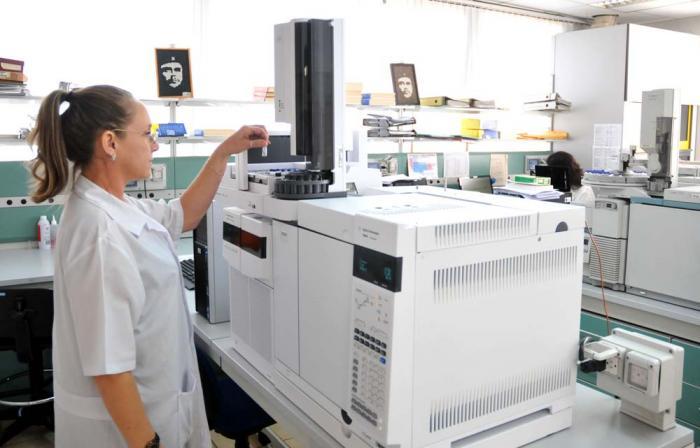
On February 13, the Havana Anti-Doping Laboratory reached its 21st anniversary, maintaining over two decades its accreditation, which can be lost, if a lab does not comply with the demanding professional and ethical requirements established by international doping authorities. The Havana lab, with its majority-female staff of 45 workers, including young professionals in training, is led by Master of Science Rodny Montes de Oca, who spoke with Granma about the decision to transfer the institution’s affiliation to the Ministry of Public Health (Minsap):
"The new international standard for laboratories, issued by the World Anti-Doping Association (WADA) requires that, as of January 1, 2022, none of these institutions be affiliated with sports ministries, institutes or government entities in charge of athletic activities, to prevent the possibility that they might be pressured to mask or hide cases of doping. Cuba's decision is to place our lab under Minsap supervision. Around the world, most are affiliated with hospitals, universities or private entities.”
-Will this change improve relations with the World Association?
- We will now comply with this additional requirement, since WADA has been insisting that these centers be operationally independent, with no external interference. Internally, we are strengthening ourselves, because our institution’s principal mission is to protect the health of athletes, and Minsap is the governing body responsible for this task in the country. Regarding its operation and management structure, WADA endorses or rejects the proposed leadership, by establishing the obligations described in its international standard.
-It's been 21 years…
-The laboratory was inaugurated by Fidel and our commitment to him is expressed in the fact that we have never lost our accreditation. Maintaining it, despite the economic, commercial and financial blockade of the United States, now tightened, is a huge accomplishment, that's why we were so proud to be awarded the Carlos J. Finlay Order last month.
How does the blockade affect the lab?
-The blockade limits the availability of financial resources to upgrade technologies and implement any new technique required by the WADA. Most of the reagents, supplies and equipment around the world, and in Cuba, are U.S. made. This means that we spend between 40% and 50% more than we would spend acquiring them from the United States.
Fifty percent more than what another center would spend to acquire the same products in third countries, at high prices - sometimes double - given the risks implied by the blockade for selling to Cuba. We are obliged to go to places as far away as Japan, which makes freight, insurance and installation more expensive. We are cut off from direct banking channels to collect income for services rendered, thus losing between 10% and 15% of our income.
-How many countries sent their analyses to Cuba in 2021?
-About ten, including Mexico, Chile, Peru, Bolivia, Nicaragua, Dominican Republic, Ecuador, Panama and Honduras. We also analyze samples from international federations. In 2020, there were more than 4,800 applications, the second highest number in one year, despite the pandemic, the reduction of flights and limited events. That figure was only surpassed in 2019, when we processed 5,400.
Montes de Oca continued, noting, “In 2021, the design and construction of two additional floors at the center was completed, which, among other spaces, allowed for a new cold chamber to preserve samples at minus 20 degrees Celsius, which will give us more capacity, as our services are in high demand in Latin America, where there is only one other lab, in Brazil. Until 2011, WADA required 1,500 samples per year, then it doubled that figure to 3,000 and our lab performs between 4,000 and 5,000, although it is designed for 1,500. With the new projections, our first goal is to reach 7,000 and then 10,000, with which we would generate more income, to meet the many expenses.”
The Havana laboratory had its second Olympic experience in Tokyo-2020, a highly significant accomplishment, validating the professionalism of a center in a small island so far away from the venue which constitutes a recognition in itself, Montes de Oca stated, adding, "Our greatest asset is the human quality of our workers."















